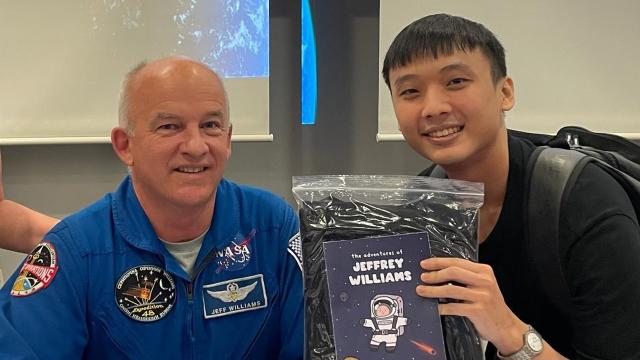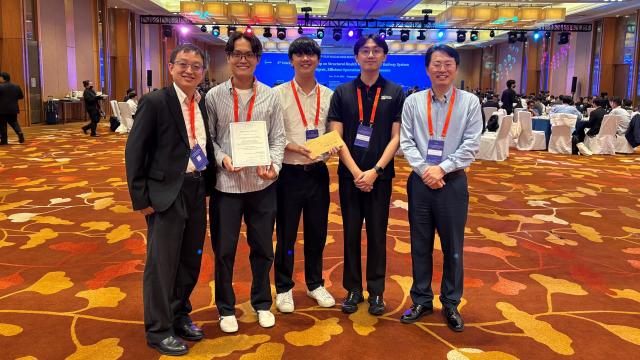Empowering Future Maritime Professionals through SIT’s Integrated Work Study Programme
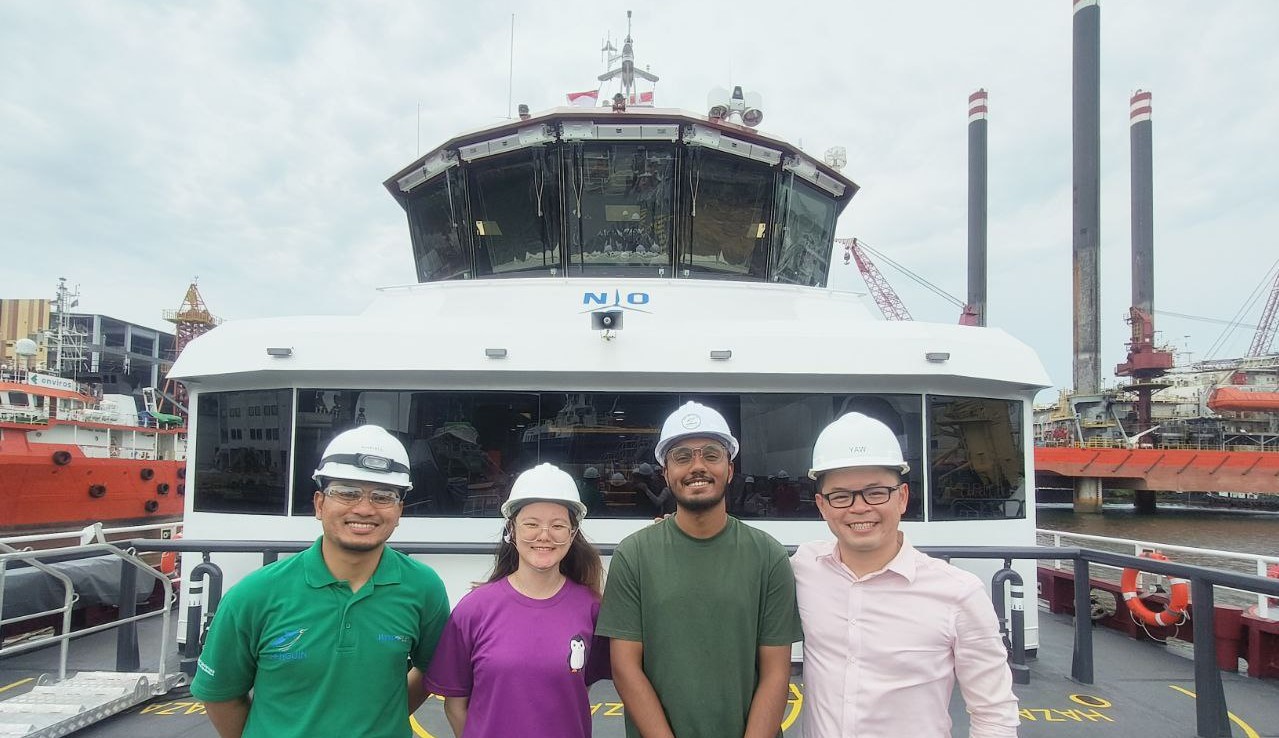
(From left) Khairul, Principal Engineer at Penguin; SIT graduate Venus Lim, Assistant Design Engineer at Penguin; Madhan Mathivanan, SIT intern at Penguin; Yaw Joo Heng, Manager of Design and Engineering at Penguin. (Photo: Penguin)
As a child, Madhan Mathivanan would spend hours constructing imaginary towns with Lego blocks. This passion for designing and building things continued in polytechnic, where he created a face shield equipped with a ventilator for healthcare workers.
Never did he expect that he would one day watch an actual ship being fabricated in person, piece by piece. Earlier this year, that was what the Naval Architecture and Marine Engineering undergraduate at the Singapore Institute of Technology (SIT) witnessed at Penguin International’s Batam shipyard.
The visit has been a key highlight of Madhan’s Integrated Work Study Programme (IWSP) , where he is attached to marine and offshore services provider Penguin’s design and engineering department, from 5 May to 5 December 2025. More than getting unprecedented access to the shipbuilding industry, it was the way he was treated, not as an intern but a full-time employee, that he valued most.
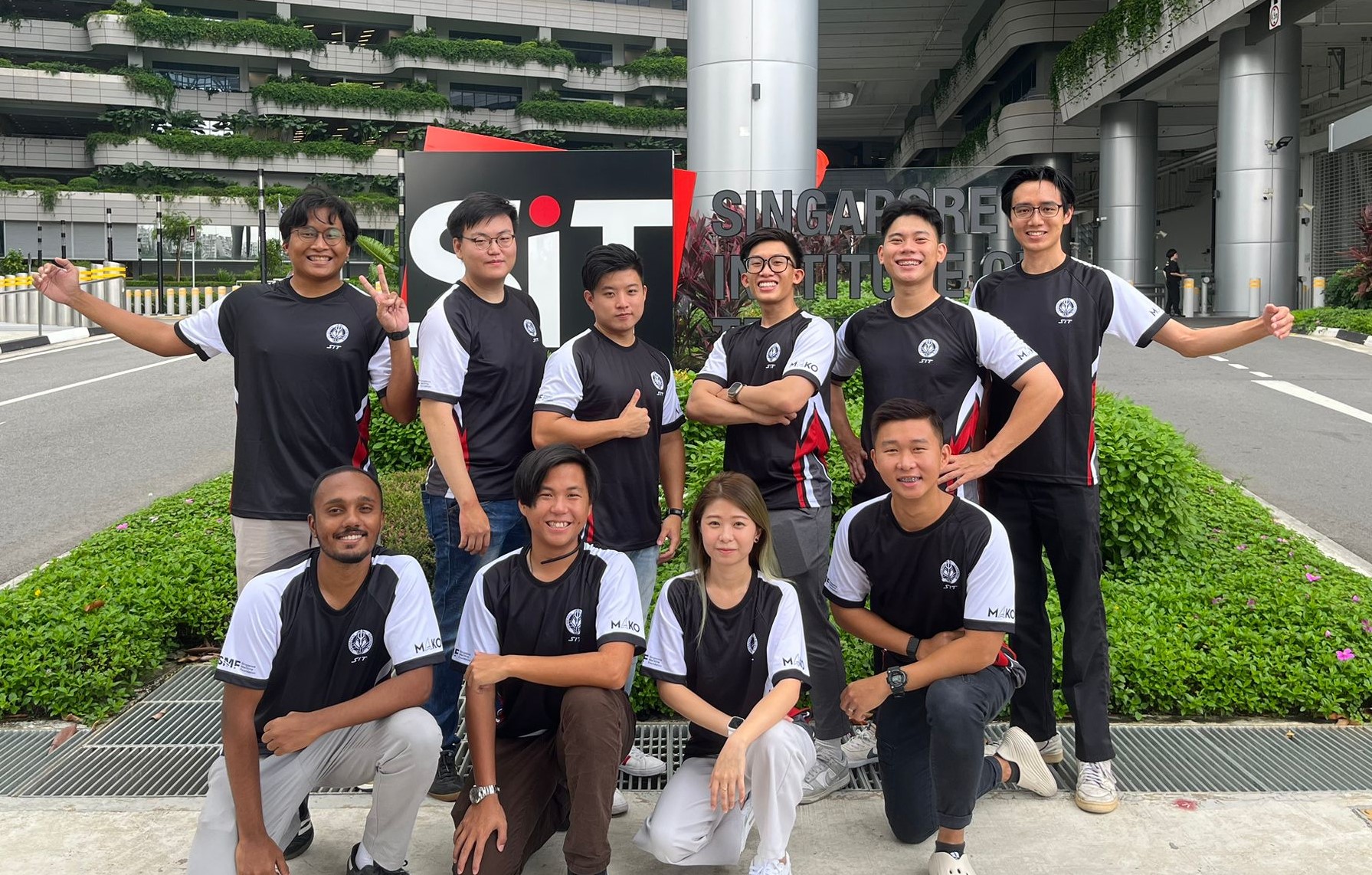
Madhan Mathivanan (squatting, extreme left) with some of his university mates at SIT Punggol Campus. (Photo: Madhan Mathivanan)
“We had the chance to interact with both Penguin’s management and external maritime leaders from global companies,” said the 25-year-old. “Most of these conversations happened during site visits to Penguin’s Batam yard, where interns were encouraged to engage directly with the guests. It’s rare for an intern to have such direct exchanges, and I gained valuable career insights from them,” said the 25-year-old.
This treatment holds true in his daily work as well, where he gets to board actual ships undergoing maintenance to assess their draft lines. He collects information that then helps the ship’s engineers determine if there is a need to recalibrate the ship. Another of his tasks is to document the interior of newly constructed ships and update their drawings if any changes have been made from the original. These are known as as-built drawings.
“Seeing my name on official engineering documents was surreal – it made me feel like I was truly contributing to the company,” he said.
Bridging the Gap between Theory and Application
Madhan’s experience was not by chance but a deliberate effort by Penguin to give its interns hands-on, real-world experiences, said Mr Yaw Joo Heng, Manager of Design and Engineering at Penguin. “Our SIT interns come to work and are treated as regular staff. We expect them to complete the same tasks as everyone else. They get involved in active projects with real clients and real problems.”
This is precisely what SIT’s IWSP, a compulsory eight to 12-month work attachment introduced in 2015, hopes to achieve – equip SIT undergraduates with the skills and experience they need to thrive in the working world. Unlike short-term work attachments, IWSP is structured to deeply integrate academic learning with hands-on industry exposure.
Students not only get to apply technical skills, such as using tools like 2D and 3D drawing software in real-life situations, which are only briefly covered in school, they also develop vital soft skills.
For SIT Mechanical Engineering graduate Ms Venus Lim, who has been an Assistant Design Engineer at Penguin since 1 November 2024, her IWSP at another firm helped her hone her interpersonal communication skills.
During her IWSP, she worked across numerous departments from procurement to engineering, and with people from different cultures and backgrounds. “There were so many different personalities and work styles. Being able to handle that and know how to approach different people is my biggest takeaway,” said Ms Lim.
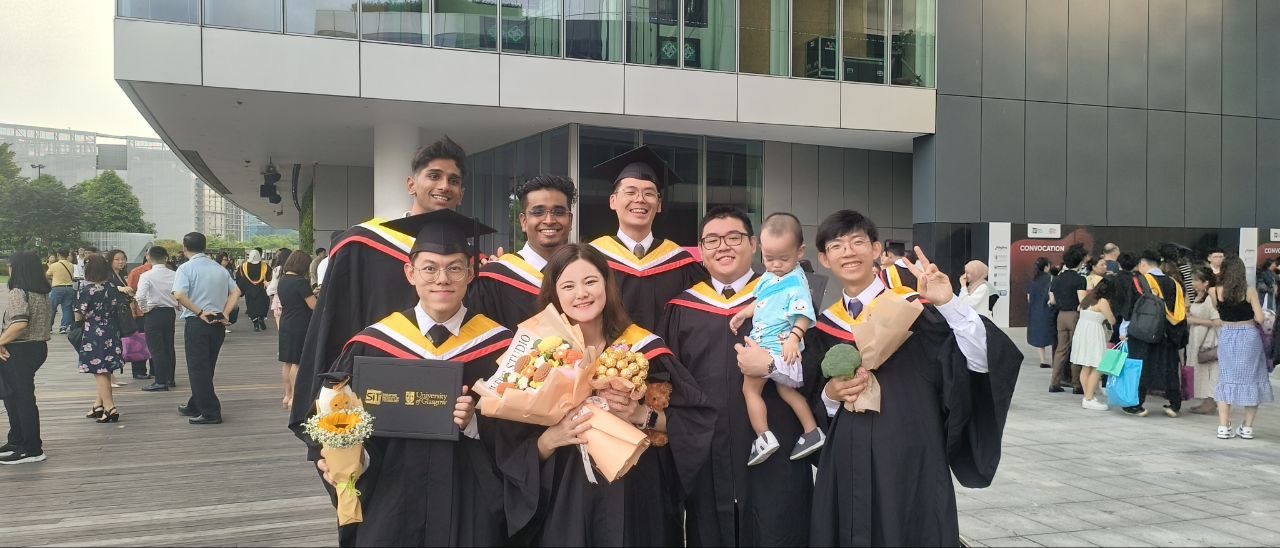
Venus Lim, a SIT mechanical engineering graduate from the Class of 2024 (second from left, front row), at SIT Convocation 2024. (Photo: Venus Lim)
Having to juggle multiple projects at the same time also taught her to tackle problems from multiple angles. “Sometimes you can get stuck in a particular mindset, especially with what you’ve been taught at school,” Ms Lim explains, “But at work, problems often have more than one solution.”
Above all else, the IWSP helped her to bridge the gap between what is taught in school and what is seen in the real-world. “During some internships, companies sometimes only get you to do menial tasks. But in IWSP, it is about gaining actual experience in the working world. If I am looking for a job, IWSP counts as work experience,” she added.
Fishing for Fresh Ideas
For companies, it is an opportunity to scout for new talent. As it was expanding into new markets, Penguin wanted to recruit young talent and the IWSP provided that avenue in 2022. “We are always looking to improve our products, so we bring in students for them to contribute fresh ideas.”
"What sets SIT interns apart from others is their “industry-readiness”, said Mr Yaw. “They are quick learners, and they integrate well into our team. They are able to carry out their responsibilities independently with minimal supervision.”
While Penguin is already an active adopter of solar energy for its vessels and buildings, the passionate ideas put forward by successive waves of SIT interns have served to motivate the company’s management to do more. For example, one SIT intern was tasked to explore the use of solar energy for powering the essential onboard systems on one of Penguin’s landing craft. With the guidance of Penguin’s veteran engineers, the SIT intern presented a preliminary feasibility study that showed this idea to be technically and commercially viable. Penguin’s management is currently evaluating this proposal.
It shows that learning goes both ways. “While the IWSP students are here to learn from us, there are times when we learn from them too,” said Mr Yaw.















![[FA] SIT One SITizen Alumni Initiative_Web banner_1244px x 688px.jpg](/sites/default/files/2024-12/%5BFA%5D%20%20SIT%20One%20SITizen%20Alumni%20Initiative_Web%20banner_1244px%20x%20688px.jpg)
